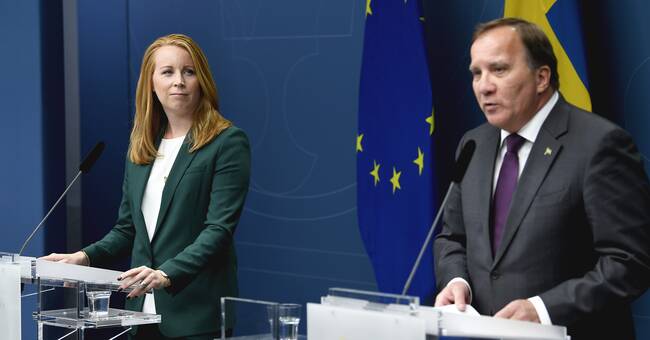It was a chirping happy Annie Lööf (C) who commented on the agreement between the Confederation of Swedish Enterprise, PTK and LO's two largest unions.
A historic settlement, of the same dignity as the Saltsjöbad Agreement, was her conclusion.
And of course the C-leader has reason to be pleased.
The changes in labor law were the Center Party's most important demands for releasing Stefan Löfven as Prime Minister.
Only on the second attempt in the government negotiations after the 2018 election, when after tough negotiations it was agreed on the wording that LAS should be changed through "clearly extended exceptions from the priority rules" Löfven got the green light from his new partner on the other side of the bloc border.
The method - to threaten the social partners with legislation if they do not agree - has been severely cut off by a united trade union movement.
- Ultimately, it is the Center Party and the Liberals who crashed this negotiation by pushing through the LAS investigation, LO chairman Susanna Gideonsson stated when the parties' negotiations stalled in early October.
Talking quietly about concessions
But now, almost two years after the January agreement was printed, the method seems to have worked.
No wonder the Center Party sees it as its most important success.
That they do not really like the concessions that IF Metall and Kommunal have gone through, they talk quietly about a day like this.
For Stefan Löfven (S), today's announcement means that he can breathe a sigh of relief.
The Left Party's threat of a motion of censure on labor law can hardly be realized when such a large part of LO's members have now supported the party agreement.
Especially when it comes to Kommunal, whose members the Left Party always says they defend.
Here, the newly-baked party leader Nooshi Dadgostar simply finds himself being left behind in an issue that has been crucial in strengthening the party's position in the LO collective.
What else can she do but welcome the changes that Kommunal has undergone?
The biggest change in employment protection in decades
That LO is divided is the icing on the cake for Stefan Löfven.
Of course, it would have been better for the Social Democrats if LO had joined centrally.
And it should not be ruled out that this is how the drama ends.
To stand by when the legislation on the labor market of the future is to be carved out probably hurts a bit in the LO guarantee.
Even more likely is that more unions will first join on their own.
The closest to hand are Handels and HRF.
There are several parts of the agreement that should appeal to their members, in particular the possibility of skills development for fixed-term employees.
Today's announcement also means that the January parties will not have to fight among themselves about possible changes to the agreement in order to appease LO.
It could otherwise have been a really difficult nut to crack during the legislative process.
Today's agreement will be of great importance to the Swedish labor market.
It is the biggest change in employment protection in decades.
In addition, there is a restructuring and skills development package that costs the Treasury just over nine billion.
But if December 4, 2020 becomes an equally historic date as December 20, 1938, when the Saltsjöbad agreement was signed, it is written in the stars.

